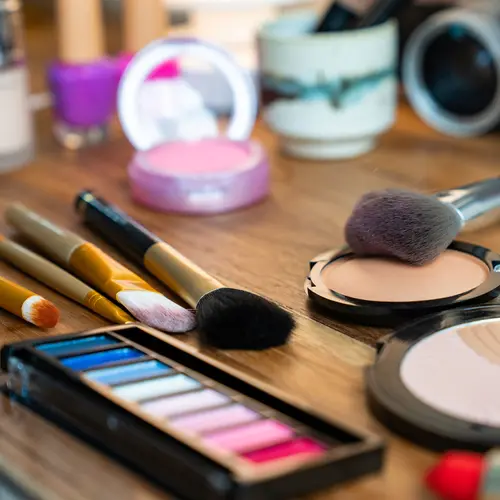Parabens are chemicals that are used as preservatives to ward off substances — fungi, yeast, and bacteria, among others — that shorten the products' shelf life. You can find them in many of the products that you use every day.
Read on to learn more about these chemicals, how they find their way into your body, and how they affect your health.
Types of Parabens
Parabens have been added to cosmetics and other products since the 1920s. If you read the ingredients on a bottle of shampoo or foundation, you may see the names of six of the most common ones:
- Methylparaben
- Ethylparaben
- Propylparaben
- Isopropylparaben
- Butylparaben
- Isobutylparaben
Some products have more than one paraben.
Products That Contain Parabens
Personal care. Some products with parabens that you might find in your home are:
- Shampoo, conditioner, and other hair care products
- Moisturizers and lotions
- Makeup
- Shaving products
In the past, parabens were also used in deodorants and antiperspirants. Today, many brands have removed parabens as ingredients in their products, but some may still use these chemicals.
Cosmetics and personal care products that are sold in the U.S. are required to list all of their ingredients on the packaging. This way, you can see if there are parabens or other ingredients or chemicals in them that you want to stay away from.
Food and drinks. For the past 50 years, parabens have also been added to foods to stop the growth of microorganisms. You might find parabens in:
- Cereals
- Candy
- Dried meats
- Beer
- Sauces
- Processed veggies
- Frozen dairy products
- Jams
- Pickles
- Flavored syrups
- Pharmaceuticals
If parabens weren’t added to these foods, they would spoil quicker, and you'd have a higher risk of ingesting food that isn’t safe to eat. Some foods, like blueberries and barley, have naturally occurring parabens in them.
Parabens and Your Health
Scientists are studying how parabens can affect your health. They know that you absorb parabens through your skin when you use personal care products that contain them. You also take in parabens when you eat or drink foods or beverages that list them as ingredients.
Scientists also know that the parabens that enter your body don't stay around for long. But they linger in your body long enough to cause concern.
Hormone disruption. The biggest concern with parabens is that some studies show that they disrupt hormones in your body. Once in your body, parabens can act like the hormone estrogen in both males and females. This could have an effect on things like:
- Fertility (sperm count and length of menstrual cycle)
- Reproductive development (fetal nourishment)
- Birth outcomes, such as preterm birth
Another possible and associated risk of parabens is early puberty in girls. Research is ongoing, but one study showed that mothers who had high concentrations of parabens in their urine during pregnancy had daughters who showed signs of puberty earlier. The girls grew pubic hair and began menstruation earlier, but breast development did not seem to be affected.
Because of such concerns, the European Union banned isopropylparaben and isobutylparaben from use in any personal care products in 2015 until more research can be done. The Association of Southeast Asian Nations has also banned these parabens.
Some safety groups have not banned parabens but are watching their possible risks. Researchers have identified parabens as chemicals that can potentially disrupt hormonal systems.
Cancer. Scientists are studying whether there is a link between parabens and breast cancer rates. So far, though, testing has only been done on animals and with higher levels of parabens than humans likely take in on a regular basis.
Paraben-Free Products
The FDA currently doesn’t have any special rules or regulations against parabens, and it states that they are generally safe to use. It still supports the view that parabens are safe to use in cosmetic products. But it continues to keep watch over the use of parabens with these ideas in mind:
- Whether there are safer alternatives to parabens as preservatives
- Whether different parabens do different things to the human body
- Whether, if science proves that parabens are harmful, it will be true of paraben use in cosmetics in addition to other products
Meanwhile, you have options if you want to find paraben-free products. Many stores sell personal care products and cosmetics that are paraben-free. Some ban certain parabens from products with their brand name.
Many so-called natural cosmetics and beauty products are paraben-free and will usually say so on their packaging.


